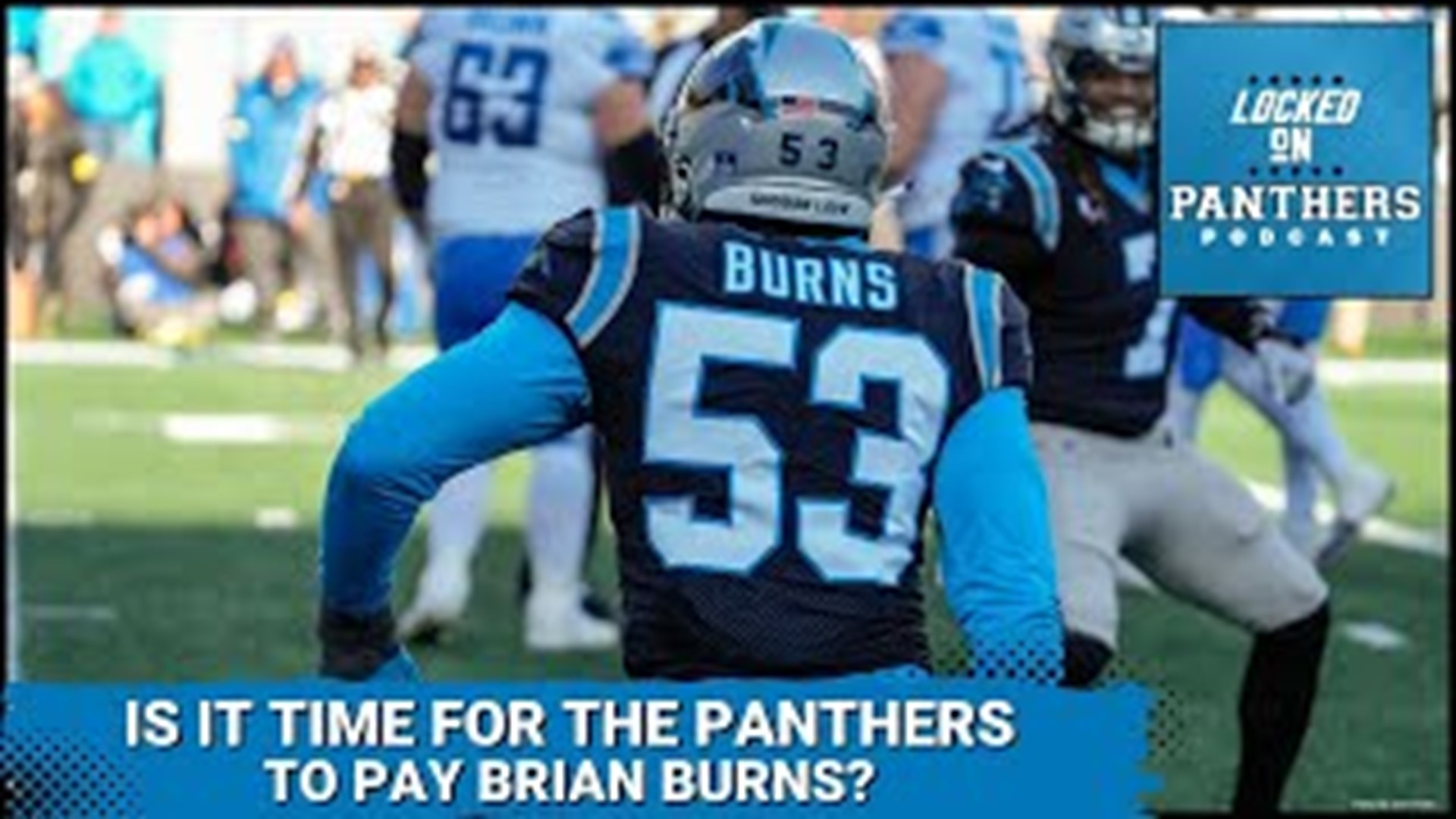CHARLOTTE, N.C. — As a new NASCAR season nears, a revamped rule book is in place for 2023.
On Monday, NASCAR announced several changes to the upcoming year for its top three series, the NASCAR Cup Series, NASCAR Xfinity Series, and NASCAR Craftsman Truck Series.
No road course stage breaks
One of the biggest changes announced impacts road course racing. NASCAR officials announced that cautions will no longer be mandated at the conclusion of stages at road course races in the NASCAR Cup Series.
Since 2017, NASCAR has broken every race into three separate stages with caution breaks at the end of stages 1 and 2. This will no longer be the case at road courses.
Stage points will still be awarded but there will be no break in the racing. NASCAR says this change is to improve pit strategy scenarios.
This change impacts races at the Charlotte Roval, Circuit of the Americas (COTA), Sonoma, Chicago Street Course, and Indianapolis road course.
Tracks that have races in the NASCAR Xfinity and Craftsman Truck series but not the NASCAR Cup Series (Mid-Ohio, Portland, and Road America) will not be impacted by this.

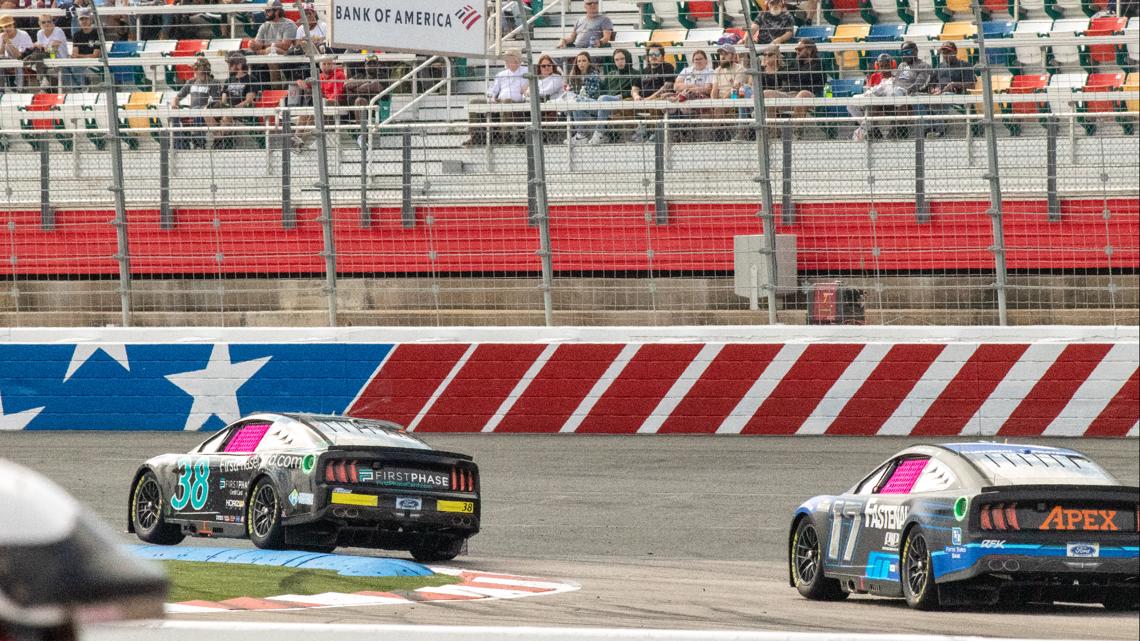
The "Ross Chastain Rule"
The NASCAR world was blown away when Ross Chastain floored the gas and rode the wall on the final lap of the 2022 Xfinity 500 at Martinsville to gain five positions and earn a slot in the championship race.
That valiant effort might be the first and last time we see a driver take that action as NASCAR states they have a time penalty in place for any action that risks safety such as Chastain's.
NASCAR rule 10.5.2.6.A states:
"Safety is a top priority for NASCAR and NEM (NASCAR Event Management). Therefore, any violations deemed to compromise the safety of an Event or otherwise pose a dangerous risk to the safety of Competitors, Officials, spectators, or others are treated with the highest degree of seriousness. Safety violations will be handled on a case-by-case basis.”
In the days following the incident, Chastain stated he has no plans to attempt that in the future.

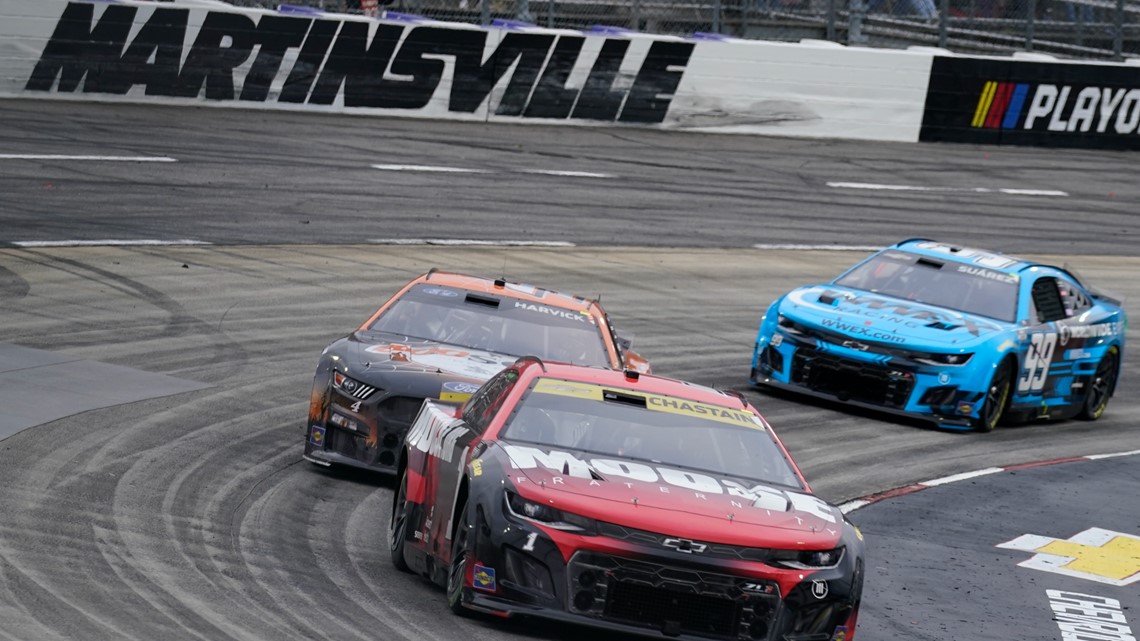
Wheel violation penalties
In previous years, NASCAR has held a harsh four-race suspension for crew chiefs of teams that have a wheel detached during a race. This penalty had major implications in the 2022 season as the NASCAR NextGen car only has one lugnut and the slightest mistake could heavily cost a team for weeks.
In 2023, the four-race suspension rule has been abandoned. Instead, NASCAR has put in place a new structure for detached wheel violations.
If a car loses a wheel on pit road, the team will have to serve a pass-through penalty under green-flag conditions. If the wheel is lost on pit road during a caution period, the team will restart at the end of the field.
If a wheel is lost on track, the team will suffer a two-lap penalty and two crew members will be suspended for two races.

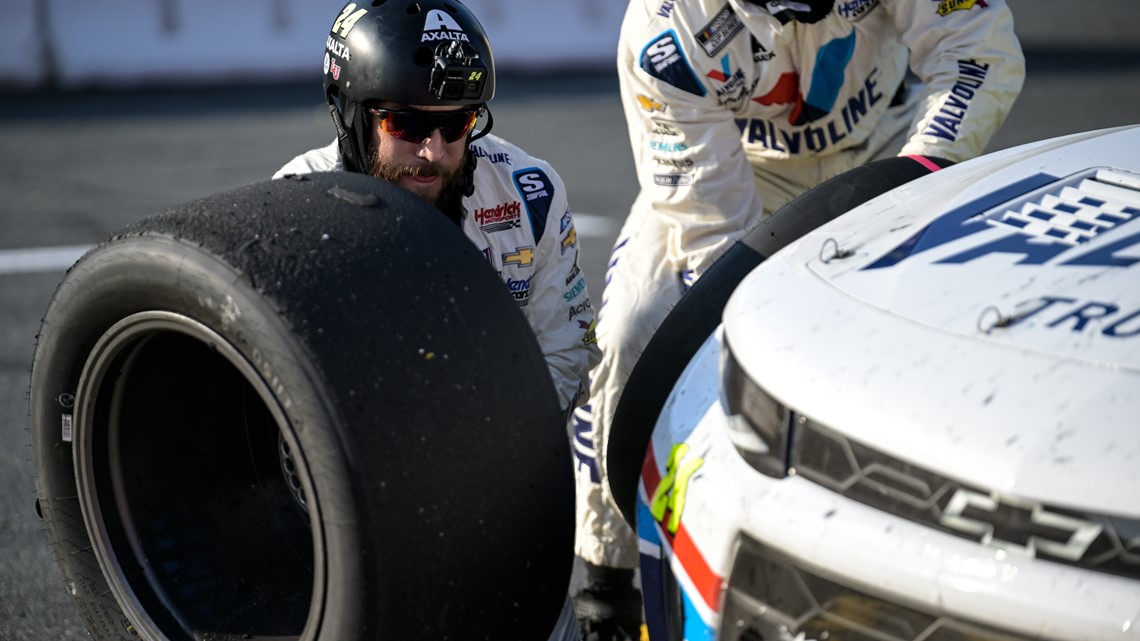
Wet-weather racing
NASCAR has only purposely driven in the rain at road courses in years past. There are only a handful of times that races have been held in rainy conditions in the NASCAR Cup and Xfinity series. Although, NASCAR inadvertently raced in the rain in the August 2022 Daytona race that caused a crash that took out most of the field.
Rain racing at Daytona won't be seen again in NASCAR anytime soon but officials have expanded possible wet-weather racing to several tracks that are one mile or less in length.
This means that races at Indianapolis Raceway Park, the Los Angeles Memorial Coliseum, Martinsville, New Hampshire, North Wilkesboro, Phoenix, Richmond, and Milwaukee will possibly see races in the rain in the future.
Rain racing tests were held at Martinsville in 2021 to determine if the expansion was possible.

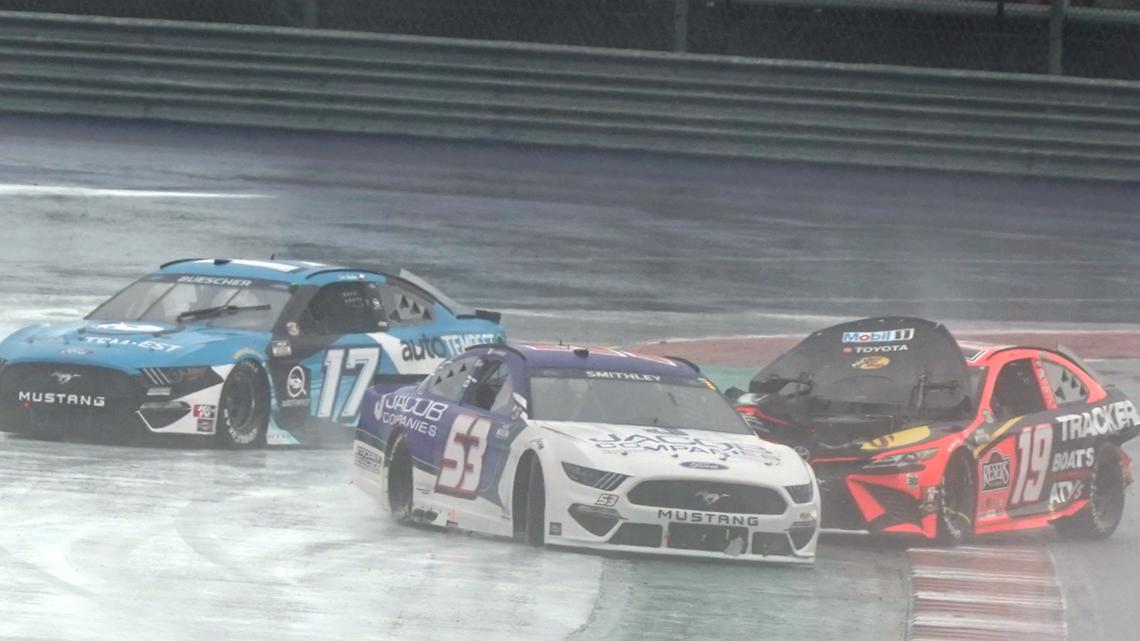
Playoff eligibility requirements
Since 2014, NASCAR's playoff system has allowed every driver with a win that's at least 30th in the overall standings to be allowed to compete for a championship in the season's last 10 races.
Starting in 2023, the 30th-place requirement has been removed. Any driver that competes in a full schedule that secures a win will be added to the playoff roster if 16 or fewer drivers win a race during the regular season.
In the Xfinity and truck series, this requirement was previously to hold at least 20th place in the overall standings.
Restart changes
NASCAR's choose rule was implemented in 2020 to allow the highest-ranking driver in each field to pick whether to restart on the inside or outside lane. This rule was in place at every track except for superspeedways and road courses.
Now in 2023, this rule will also be in place for superspeedways and road courses.
Another change coming to restarts in 2023 is the expansion of the "restart zone." This zone will be expanded by 50% for the first five races of 2023. After the fifth race at Atlanta, officials will determine whether or not to keep the expansion in place.

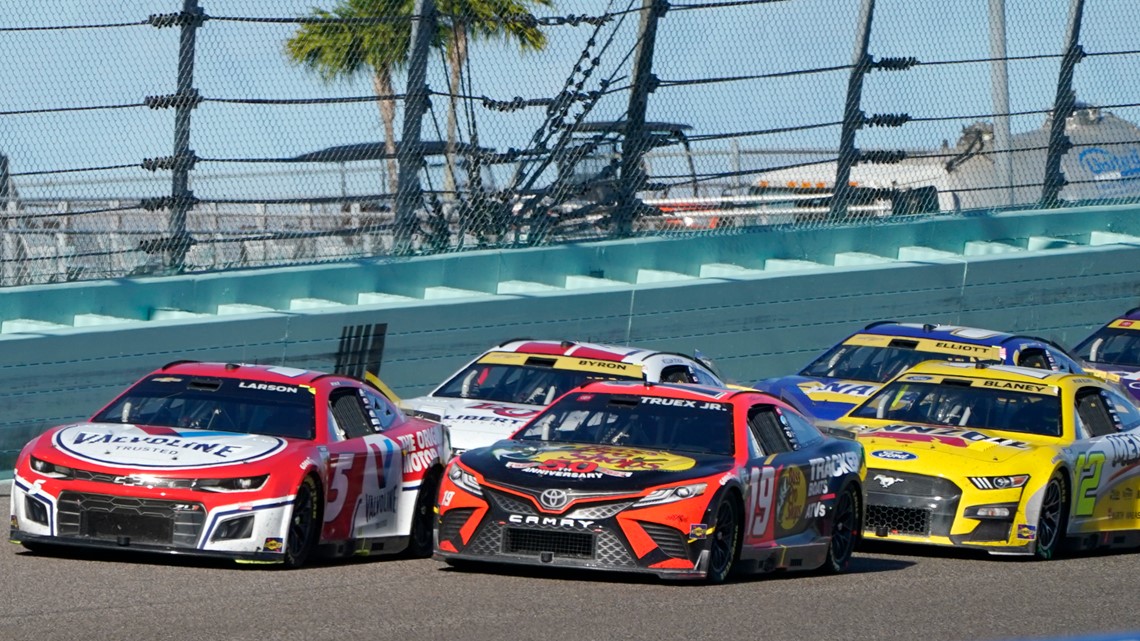
Repair clock changes
The repair time allowed for teams to mend a damaged car on pit road has once again changed.
NASCAR's damaged vehicle policy (DVP) now will allow seven minutes for teams to fix a vehicle damaged in a crash. The clock has previously been five minutes, six minutes, and 10 minutes.
No specialized tools will be allowed to fix a car during the repair clock. Toe links will now be allowed to be repaired.

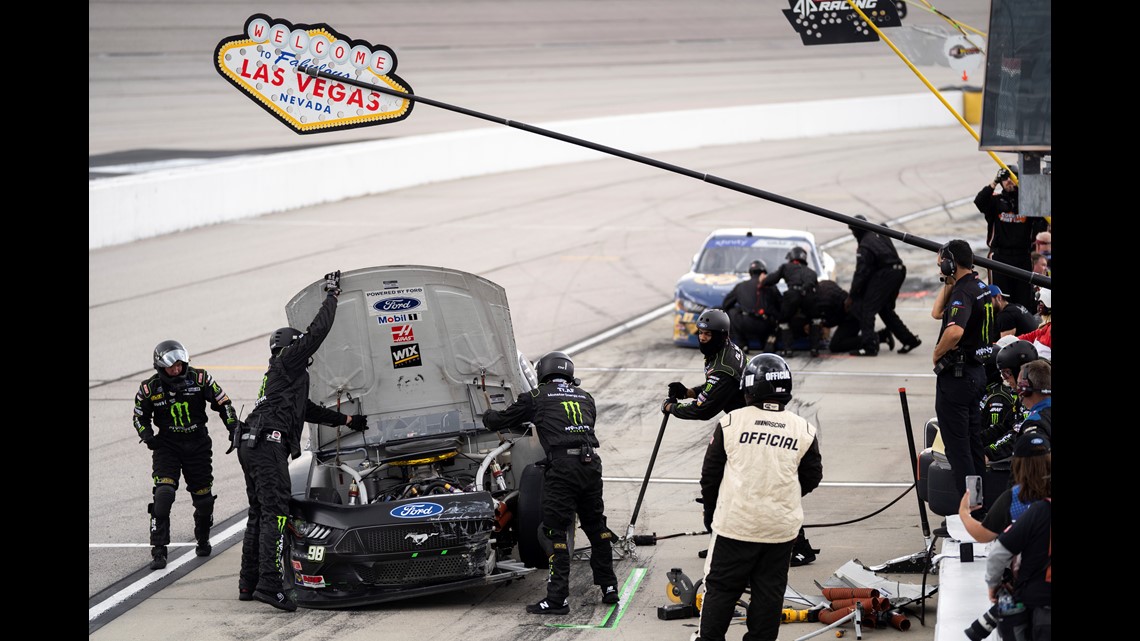
Pit stall encroachment
Drivers that encroach on other pit stalls when coming into their own pit stall may receive a penalty. Stalls will be highlighted with orange markings to allow officials to make these calls.
This is being done, according to NASCAR, to limit vehicle interference with crews during pit stops.

